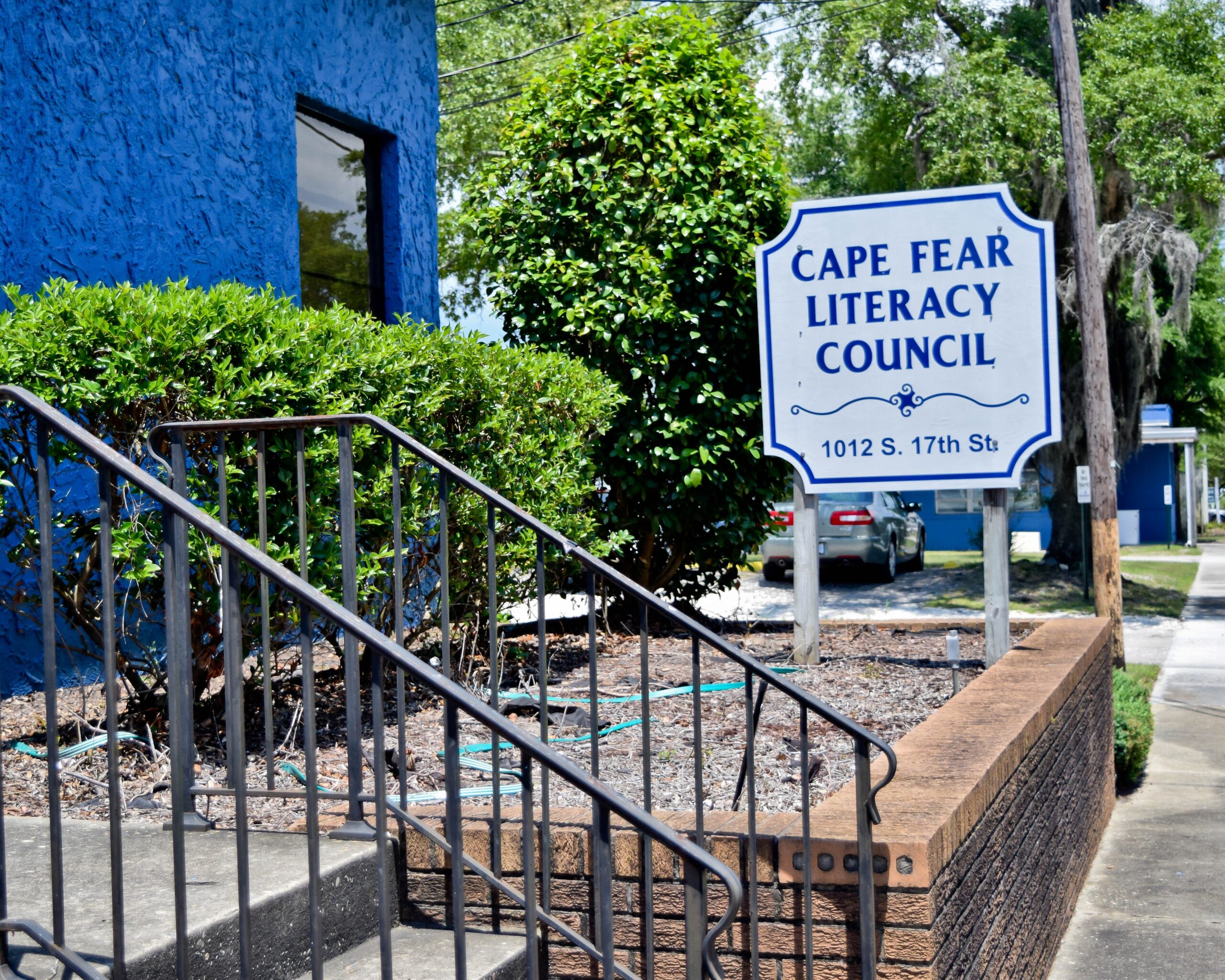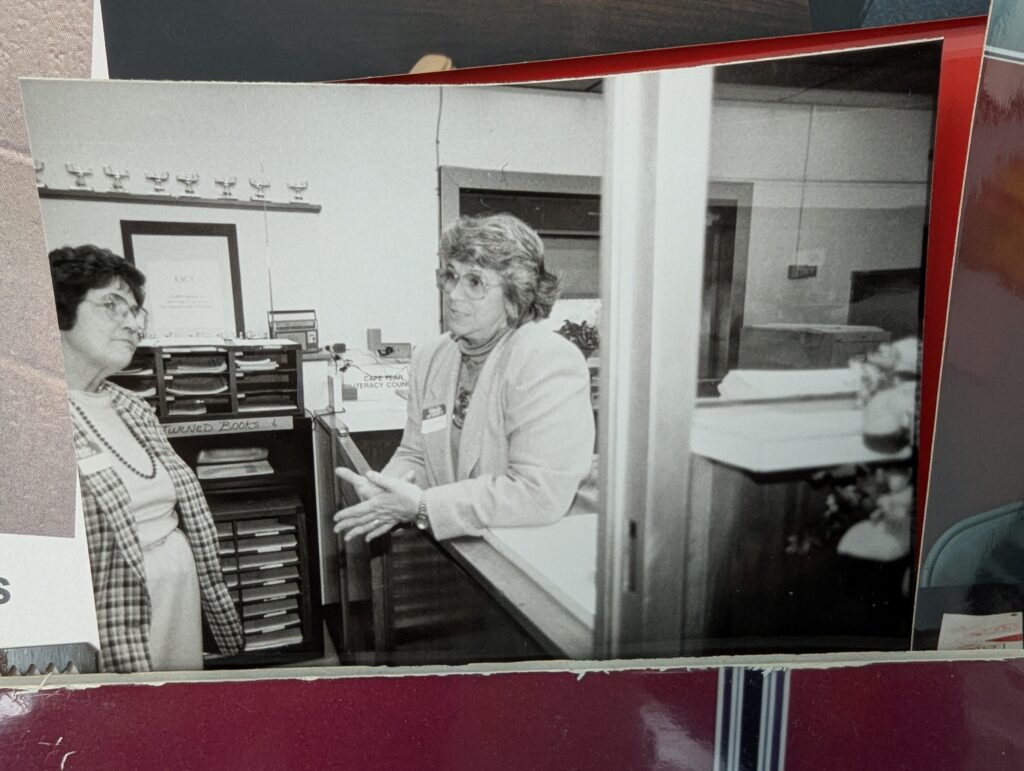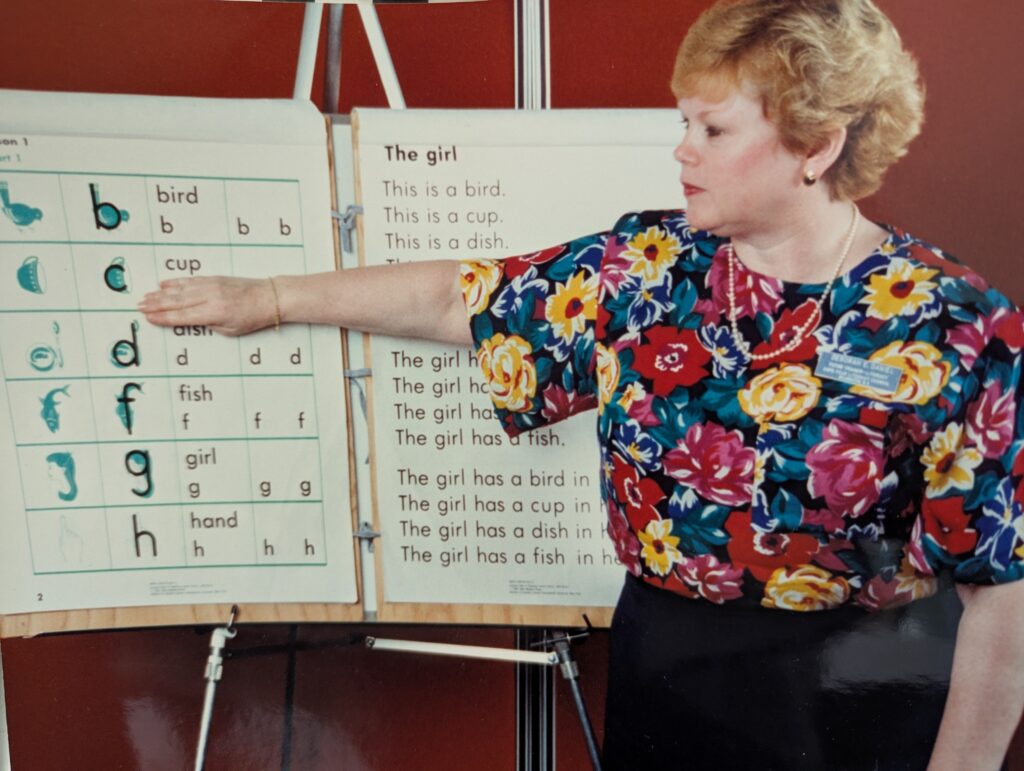
Origin Story: A Brief History of CFLC
Humble Beginnings
Cape Fear Literacy Council began in 1970 as the Wilmington Literacy Group, a volunteer mission project of the Wilmington Baptist Association. Detailed records were not kept so the actual number of students served and tutors trained is unknown. However, in 1984, those working with the program realized that the literacy problem was far too great to be handled as an off-shoot group.
A Community Advisory Council was formed with representatives from Cape Fear Community College, UNCW, New Hanover County Board of Education, the public libraries, and several other organizations in New Hanover and Pender counties. Cape Fear Literacy Council was born, run first by volunteers and one VISTA worker. Later another VISTA worker was added.

In 1985, the Council was officially chartered as an independent, not-for-profit 501(c)(3) organization — the only volunteer adult literacy agency serving the estimated 24,000 functionally illiterate adults in New Hanover and Pender counties.
A New Era
Finances were almost nil. The Wilmington Baptist Association continued to provide housing, but tutors were expected to pay for tutoring materials. The Council’s total budget was $500, from a B. Dalton Book Sellers’ grant specifically designated to pay for the Council’s phone line and services.
In 1987, a Library of Congress grant enabled the Council to hire one full-time and one part-time staff person. In 1991, a federal grant from the Adult Basic Education program, administered by NC Community Colleges, made it possible to add a second part-time employee and to provide, for the first time, materials without charge for volunteers, tutors, and students.
Space became a major problem. On January 11, 1997 the building and property at 1012 S. 17th Street was identified as a possible location and the Board acted quickly obtained a loan to purchase the property. On March 7, 1997 the Deed was signed and Cape Fear Literacy Council became the owner of the property. April 5, 1997 The council moved into its new and permanent home. In 2010, we purchased the building across our parking lot to further expand our classroom space. In 2014 construction began; the CFLC “campus” is growing to meet the needs of our students and volunteers.

In 1999 and again in 2012, the North Carolina Center for Nonprofits honored the CFLC Board with the Nonprofit Steward Award because of “their exemplary steps to fulfill the public trust.” This prestigious award was given to the board in recognition of their exceptional leadership, resourcefulness and commitment as they protected the mission of the council while raising the funds for a permanent home for literacy in our community.
The expansion of our building, program, and services has required an expansion of our staff. The current staff of the Literacy Council includes an Executive Director, a Program Manager, an Adult Literacy Coordinator, an ESL Coordinator, a Program Assistant who works for both programs, a Business Manager, a Development Director, a Communications Director, and a Community Outreach Program Assistant. Along with the Training Team, the entire staff is dedicated to supporting students and tutors.
Our Core Program Remains Unchanged
It’s been a long road, but the work has only begun. For more than forty years, the Council has recruited, trained and certified more than 2,000 volunteer tutors. These tutors, in turn, have donated hundreds of thousands of hours to work with more than 6,000 students throughout the Cape Fear region.

Tutoring continues on a one-on-one basis with tutors and students developing objectives and schedules, and the Council trainers and staff providing on-going support and materials. In addition, we have small classes for study skills, for ESL students, and for specific topics such as computers, as needed.
It’s a great formula that we know works, and works well. Now the challenge is to see how far we can stretch our resources. We want to reach out to serve an even broader student base. We want to expand our illiteracy prevention intervention, and strengthen our workplace and post-secondary transition programs. We want to build on the successes of the past decade, while looking continually to the future and all it may hold.
We know that breaking the stronghold of adult illiteracy is a long-term, slow effort. We also know, however, that it is a crucial investment for the future of our city, our county, our state and our nation.
If we want everyone to have a place in today’s global economy, support of literacy programs is not simply a nice gesture — it is an absolute necessity.

40 Years of Adult Education
